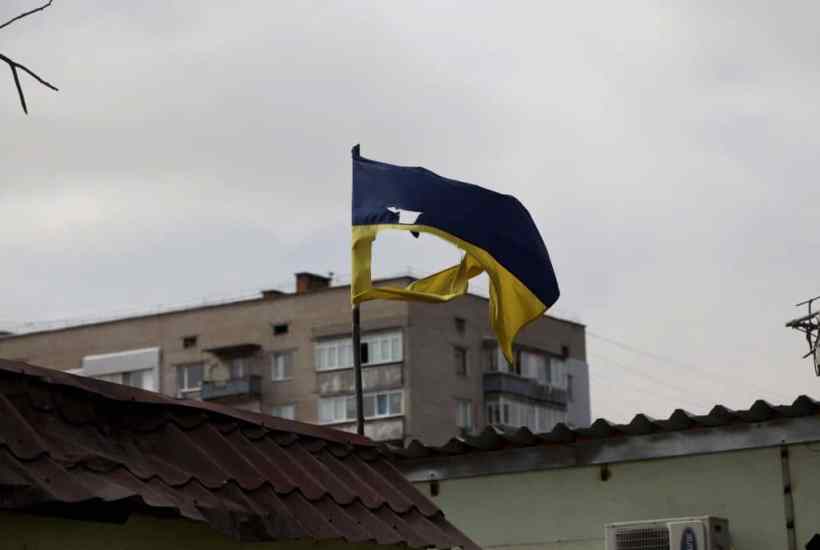While Russia has agreed to pull back its troops from Kyiv, the signs of a wider breakthrough in peace talks are far from promising. Ukrainian foreign minister Dmytro Kuleba insists that his country will not trade ‘people, land, or sovereignty’; and the US state department believes Russia too is unlikely to make compromises. Yet while striking a negotiated settlement might seem to be against the odds, this outcome remains the best hope for Ukraine.
Outright victory is not an obvious possibility for either party to the conflict. The Russian advance has stalled, and the army lacks the troops for a full occupation. Ukrainian forces lack the ability to force Russia to withdraw from its country. Neither side appears sufficiently exhausted by the conflict to simply give up. Leaving the war as a frozen conflict – breakaway provinces occupied by Russian forces, a long line of separation, and no formal end to fighting – is very possible. It is also very unappealing.
For now, though, there is a strong incentive for both sides to eke out the conflict for as long as they believe they can strengthen their negotiating position, gaining leverage before finally talking in earnest.
So when might Ukraine’s position be at its strongest? Its hope rests, at least in part, upon Western public opinion; weapons are sent, refugees are housed, sanctions imposed because there is popular demand to do so.
While Ukraine’s dominance of the narrative – ably aided and abetted by its Western friends – has been impressive, this is still a fragile foundation. Attention is already starting to drift away from the war as readers and viewers turn their gaze towards the next current thing. If attempts by Joe Biden and Boris Johnson to pin the blame for inflation on the war in Ukraine and associated sanctions succeed, this trend could accelerate. It’s easy to call for the government to do everything it can to help Ukraine when the costs are far away on the frontlines; it’s another when you believe you feel it in your pocket. Polling in the United States already shows inflation is the greatest concern for the electorate; if these narratives connect, then support for Ukraine could soon start to evaporate.
The opening of the conflict was marked by Russia engaging in a sort of war by wishful thinking; a belief that Ukraine would simply roll over and welcome its liberation from a fictitious far-right regime, and an excess of confidence in the ability of Moscow’s armed forces. So far, despite the propaganda efforts directed at shoring up Western support, Ukraine appears to be avoiding this trap.
Zelenskyy has already offered significant concessions in the form of neutrality and abandoning Ukraine’s ambition to join Nato. Other offers include discussing the status of Crimea and Donbass, and giving the Russian language protected status if equivalent guarantees are offered for the Ukrainian language in Russia. Moscow has dropped its demand for denazification and demilitarisation and would accept Ukraine joining the EU. It has also restated a more limited primary goal of ‘liberating’ the Donbass region.
As the Ukrainian side note, the Russians have hardly proved trustworthy and reliable interlocutors, and there are concerns that the talks are just a way of buying time for preparation. Finding a way to guarantee the outcome of the talks is also a challenge. A conflict which was signalled by Russia’s request for ‘security guarantees’ from the West could now be prolonged by Ukraine’s request for the same, albeit in very different form; while Russia wanted a rolling back of Nato, Ukraine wants protection analogous to that offered by Article 5.
This last point is complicated by the fact that the interests of the West and Ukraine are not totally aligned. Western countries are very willing to spend money backing Ukraine in a war that degrades Russia’s military strength, but are not willing to directly involve themselves in the conflict. Pledging to protect Ukrainian sovereignty would bring it within Nato’s nuclear umbrella; a prerequisite for this step would be the certainty that there is no risk of the conflict re-igniting in the future.
These difficulties do not mean negotiations will fail. The longer the war goes on, the worse things become for both parties. Russian forces have abandoned their early restraint, returning to their tried and tested tactics of shelling indiscriminately. Ukrainian soldiers are inflicting heavy losses of men and material on their Russian counterparts. If both parties see the pathway to higher leverage as sufficiently costly, diplomacy has a chance. If, on the other hand, both believe victory is on the table, we can expect things to get worse. Wishful thinking does not win wars, but it can prolong them.
Got something to add? Join the discussion and comment below.
Get 10 issues for just $10
Subscribe to The Spectator Australia today for the next 10 magazine issues, plus full online access, for just $10.



















Comments
Don't miss out
Join the conversation with other Spectator Australia readers. Subscribe to leave a comment.
SUBSCRIBEAlready a subscriber? Log in